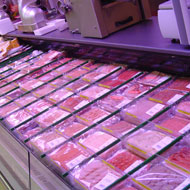
Levels consistent with ‘deliberate inclusion’, FSA says
Over a fifth of meat samples tested in 2017 contained DNA from animals that were not specified in the labelling, the BBC has revealed.
The Food Standards Agency (FSA) collected 665 results from England, Wales and Northern Ireland - of which 145 were partly or wholly made up of unspecified meat. This is according to a freedom of information request by the BBC.
Samples came from 487 businesses, including restaurants and supermarkets.
FSA said the levels of contamination are consistent with ‘deliberate inclusion’. However, testing targeted businesses that were under suspicion of compliance issues.
In total, 73 of the contaminated samples were from retailers, including three supermarkets, while a further 50 were from restaurants and 22 from manufacturing or food processing plants.
Some samples contained DNA from as many as four different animals, while others had no trace of the meat on the label. Cow DNA was the most common contaminant, followed by pig, chicken, sheep and turkey.
Meat labelled as lamb was most likely to contain DNA from other animals, while mince meat was the most frequently mislabelled.
An FSA spokesperson is quoted by BBC News as saying the results are “not representative of the wider food industry”.
However, it is difficult to build a clearer picture of the wider industry, as less than half of local authorities submitted meat sampling data to the Food Surveillance System in 2017.



 The Veterinary Medicines Directorate (VMD) is inviting applications from veterinary students to attend a one-week extramural studies (EMS) placement in July 2026.
The Veterinary Medicines Directorate (VMD) is inviting applications from veterinary students to attend a one-week extramural studies (EMS) placement in July 2026.